
8.1K
Downloads
39
Episodes
Part of UMass Boston’s Philosophy Department, the Applied Ethics Center promotes research, teaching, and awareness of ethics in public life. In this podcast, Applied Ethics Center Director Nir Eisikovits hosts conversations on the intersection of ethics, politics, and technology.
Episodes
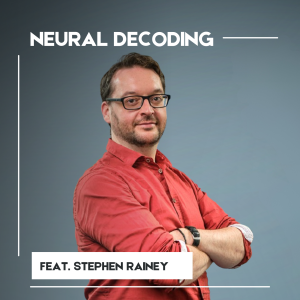
Tuesday Feb 18, 2025
Neural Decoding: A Conversation with Stephen Rainey
Tuesday Feb 18, 2025
Tuesday Feb 18, 2025
In this ninth episode of our series on brain-computer interfaces, we are joined by Stephen Rainey. Dr. Rainey is Assistant Professor in Philosophy and Technology at Delft University of Technology, specializing in neuroethics and neurophilosophy. He is the author of the 2023 book Philosophical Perspectives on Brain Data, which raises and addresses questions about how neurotechnologies can and ought to be used. His current research focuses on exploring the intersections between neurotechnologies and artificial intelligence, especially Large Language Models and the prospect of mind-reading technology. Dr. Rainey applies his research findings in the form of policy advice, working with committees of the European Commission and the WHO. In this episode, we discuss several aspects of Dr. Rainey’s work, including what brain data is and how it differs from other types of personal data, the distinction between mind reading and neural decoding, neuromarketing and neurocapitalism, science fiction prototyping, the possibility and risks associated with the use of neurotechnology in the criminal justice system, and the debate surrounding neurorights.

Sunday Feb 02, 2025
Cyborg Ethics: A Conversation with Stefan Lorenz Sorgner
Sunday Feb 02, 2025
Sunday Feb 02, 2025
In this eighth episode of our series on brain-computer interfaces, we are joined by Stefan Lorenz Sorgner. Dr. Sorgner is a philosophy professor at John Cabot University in Rome, Director and Co-Founder of the Beyond Humanism Network, Fellow at the Institute for Ethics and Emerging Technologies (IEET), and Editor-in-Chief and Founder of the Journal of Posthuman Studies. Dr. Sorgner is well known for his work on transhumanism, Nietzsche, philosophy of music, and ethics of emerging technologies, and is the author of many books, including most recently We Have Always Been Cyborgs: Digital Data, Gene Technologies, and an Ethics of Transhumanism and Philosophy of Posthuman Art. In this episode, we discuss several aspects of Dr. Sorgner’s wide-ranging work, including Nietzschean philosophy and its connection to transhumanism, Sorgner’s concept of metahumanism and how it differs from transhumanism and posthumanism, his cyborg thesis, his critique of traditional utopianism, the differing data collection models in the U.S., China, and the EU, his critique of the EU’s GDPR privacy laws, and his proposal for government-managed anonymized medical data collection to enhance technological competitiveness and support universal healthcare, among other topics.
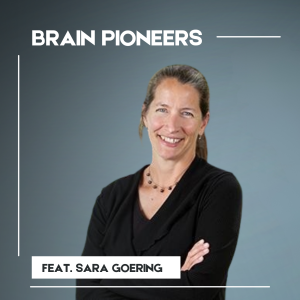
Wednesday Dec 18, 2024
Brain Pioneers: A Conversation with Sara Goering
Wednesday Dec 18, 2024
Wednesday Dec 18, 2024
In this seventh episode of our series on brain-computer interfaces, we are joined by Sara Goering. Dr. Goering is Professor of Philosophy, and Core Faculty for the Program on Ethics and the Disability Studies Program at the University of Washington. She co-leads the ethics thrust at the UW Center for Neurotechnology and also spends time discussing philosophy with children in the Seattle public schools, through the UW Center for Philosophy of Children. In this episode, we discuss several aspects of Dr. Goering’s wide-ranging work, including the medical versus social model of disability, the intersection of philosophy of disability and neuroethics, the importance of user-centered design in BCI research, the value of a ‘needs pull’ rather than ‘technology push’ approach to such research, the BCI Pioneers Coalition, privacy concerns and informed consent in the context of brain data, neurotechnology and the concept of relational agency, the extended mind and its connection to disability, and more topics.
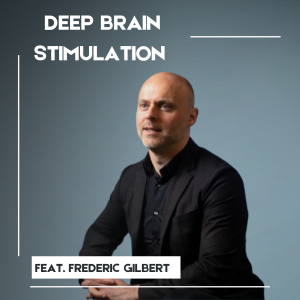
Thursday Dec 12, 2024
Deep Brain Stimulation: A Conversation with Frederic Gilbert
Thursday Dec 12, 2024
Thursday Dec 12, 2024
In this sixth episode of our series on brain-computer interfaces, we are joined by Frederic Gilbert. Dr. Gilbert is an Associate Professor in Ethics and the Head of the Discipline for Philosophy at the University of Tasmania. His research focuses on the ethics of novel implantable brain-computer interfaces operated by Artificial Intelligence (AI). Dr. Gilbert is a pioneer in various aspects of human-computer interaction, particularly the effects of AI on an individual's sense of control, autonomy, agency, and self, including during treatment for neurological and psychiatric conditions such as dementia, epilepsy, severe depression, Parkinson's disease, and obsessive-compulsive disorder. In this episode, we discuss several aspects of Dr. Gilbert’s wide-ranging work, focusing on deep brain stimulation (DBS). We talk about the phenomenological effects of DBS on the user’s sense of agency and autonomy, psychiatric versus neurological use cases of DBS, the BCI companies Neuralink and Synchron, neurorights, informed consent for having a brain-computer interface (BCI) explanted (as opposed to implanted), the burden of abnormality, deteriorative versus restorative estrangement following DBS, predictive neurotechnology, the media and academic hype surrounding mind-reading in neurotechnology, among other topics.
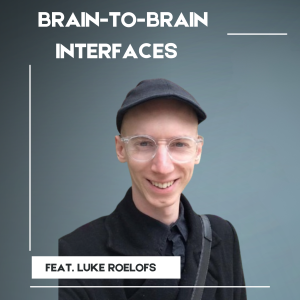
Saturday Nov 16, 2024
Brain-to-Brain Interfaces: A Conversation with Luke Roelofs
Saturday Nov 16, 2024
Saturday Nov 16, 2024
In this fifth episode of our mini-series on brain-computer interfaces, we are joined by Luke Roelofs. Dr. Roelofs is an assistant professor of philosophy at the University of Texas at Arlington. He is the author of numerous articles as well as the 2019 book Combining Minds: How to Think about Compositive Subjectivity, published by Oxford University Press. Dr. Roelofs’ research explores the metaphysics, epistemology, and ethics of consciousness, including human consciousness, animal consciousness, and the possibility of artificial consciousness. In this episode, we discuss various aspects of Dr. Roelofs wide-ranging work, primarily as it relates to brain-computer interfaces. Some topics we focus on include brain-to-brain interfaces, the possibility of technological telepathy, the moral significance of shared mental states, split-brain and conjoined brain cases, the concept of neural mind melding, the unity of consciousness, insect colonies as possible real-life examples of hive minds, panpsychism, the problem of other minds, biopsychism and the possibility of AI consciousness, and integrated information theory.
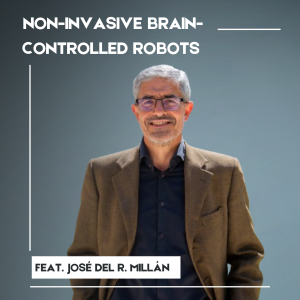
Tuesday Nov 12, 2024
Non-Invasive Brain-Controlled Robots: A Conversation with José del R. Millán
Tuesday Nov 12, 2024
Tuesday Nov 12, 2024
In this fourth episode of the series, we are joined by José del R. Millán. Dr. Millán is a professor at the University of Texas at Austin, where he runs the Clinical Neuroprosthetics and Brain Interaction Lab and holds the Linda Steen Norris & Lee Norris Endowed Chair in Neuroengineering in the Chandra Family Department of Electrical and Computer Engineering. He is also a professor in the Department of Neurology at Dell Medical School, co-director of the UT CARE Initiative and associate director of Texas Robotics. Dr. Millán has made several seminal contributions to the field of brain-machine interfaces (BMI), especially non invasive EEG-based BCIs. Many of his achievements revolve around the design of brain-controlled robots. While his work prioritizes the translation of BMI to people who live with motor and cognitive disabilities, he is also designing BMI technology to offer new interaction modalities for able-bodied people that augment their abilities. In this episode, we discuss various elements of Dr. Millán’s work, including neuroplasticity and brain signaling as a skill, noninvasive EEG-based mobile robots, VR-based neurorehabilitation, BCI-controlled wheelchairs and exoskeletons, telerobotic surgery, enhancing human driving capabilities with BCI technology, the importance of 'shared control' between human and machine, integrating AI and machine learning with brain-computer interfaces, and the evolution of non-invasive BCIs towards sleeker, more user-friendly designs.
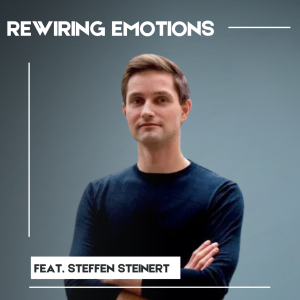
Saturday Oct 26, 2024
Rewiring Emotions: A Conversation with Steffen Steinert
Saturday Oct 26, 2024
Saturday Oct 26, 2024
In this third episode of our mini-series on brain-computer interfaces, we are joined by Steffen Steinert. Dr. Steinert is an Assistant Professor in the Ethics and Philosophy section at Delft University of Technology. His research focuses on fundamental theoretical issues of ethics and philosophy of technology - particularly the relationship between values and technology, and the link between emotions and technology. In this episode, we discuss various aspects of Dr. Steinert’s work, including the ethics of affective brain-computer interfaces, autonomy and BCIs, transformative experiences and informed consent, emotional contagion on social media, technology-induced value changes in society, and value-sensitive design approaches to emerging technologies.

Monday Sep 30, 2024
AI, Consciousness, and the Future Mind: A Conversation with Susan Schneider
Monday Sep 30, 2024
Monday Sep 30, 2024
In this second episode of our mini-series on brain-computer interfaces, we are joined by Susan Schneider. Dr. Schneider is the founding director of the Center for the Future Mind at Florida Atlantic University, where she is the William F. Dietrich Distinguished Professor of Philosophy. She specializes in the philosophy of mind, philosophy of artificial intelligence, metaphysics, and the philosophy of cognitive science. Dr. Schneider has written several influential books, including most recently Artificial You: AI and the Future of Your Mind. In addition to being an academic philosopher, Dr. Schneider is a very successful public philosopher. She frequently writes opinion pieces for outlets like the New York Times and Scientific American, and appears on TV shows on stations such as PBS and The History Channel. This episode covers many topics, including philosophical questions about the self and consciousness in the context of future brain chips, the possibility of mind uploading, quantum mechanics and Susan’s new theory of consciousness that she calls ‘superpsychism’, surveillance capitalism and privacy concerns surrounding AI and brain-computer interfaces, AI digital twins, brain-to-brain interfaces and questions about the unity of consciousness, what Susan calls the Global Brain Hypothesis and the new control problem, AI regulation and the AI global arms race, the concept of AGI and what it takes to create it, and epistemological issues surrounding AI as they relate to the opacity of AI systems and the hallucination problem for large language models.
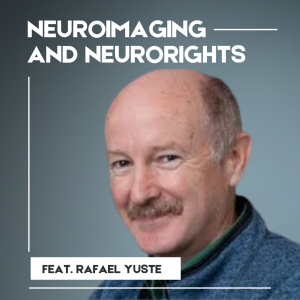
Friday Sep 27, 2024
Neuroimaging and Neurorights: A Conversation with Rafael Yuste
Friday Sep 27, 2024
Friday Sep 27, 2024
In this inaugural episode of our mini-series on brain-computer interfaces, we are joined by Rafael Yuste. Dr. Yuste is Professor of Biological Sciences and Neuroscience at Columbia University, where he directs the Neurotechnology Center. Dr. Yuste is known for his pioneering work on neural circuits and the development of cutting-edge neural imaging techniques, like two-photon calcium imaging. He also co-founded the NeuroRights Foundation to promote and protect neurorights such as mental privacy and cognitive liberty, and was one of the originators of the BRAIN Initiative, a large-scale scientific effort launched by the U.S. government in 2013 to advance understanding of the human brain. In this episode, we talk to Dr. Yuste about some of his empirical work, as well as his work related to neurorights advocacy and the BRAIN Initiative.
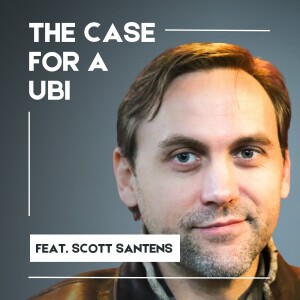
Tuesday Nov 14, 2023
The Case for a UBI: A Conversation with Scott Santens
Tuesday Nov 14, 2023
Tuesday Nov 14, 2023
In our final episode in our mini-series on the future of work, we are joined by universal basic income (UBI) advocate and writer Scott Santens. Scott is the founder and president of the Income To Support All Foundation (ITSA Foundation), the Senior Advisor for Humanity Forward, and he also serves on the board of directors of the Gerald Huff Fund for Humanity and as the editor of Basic Income Today. In this episode, we chat with Scott about the viability of a UBI, the philosophical and political arguments in favor of a UBI, and the importance of destigmatizing the concept of free money. Interested listeners should check out Scott's debut book about UBI and how to pay for it, Let There Be Money.
